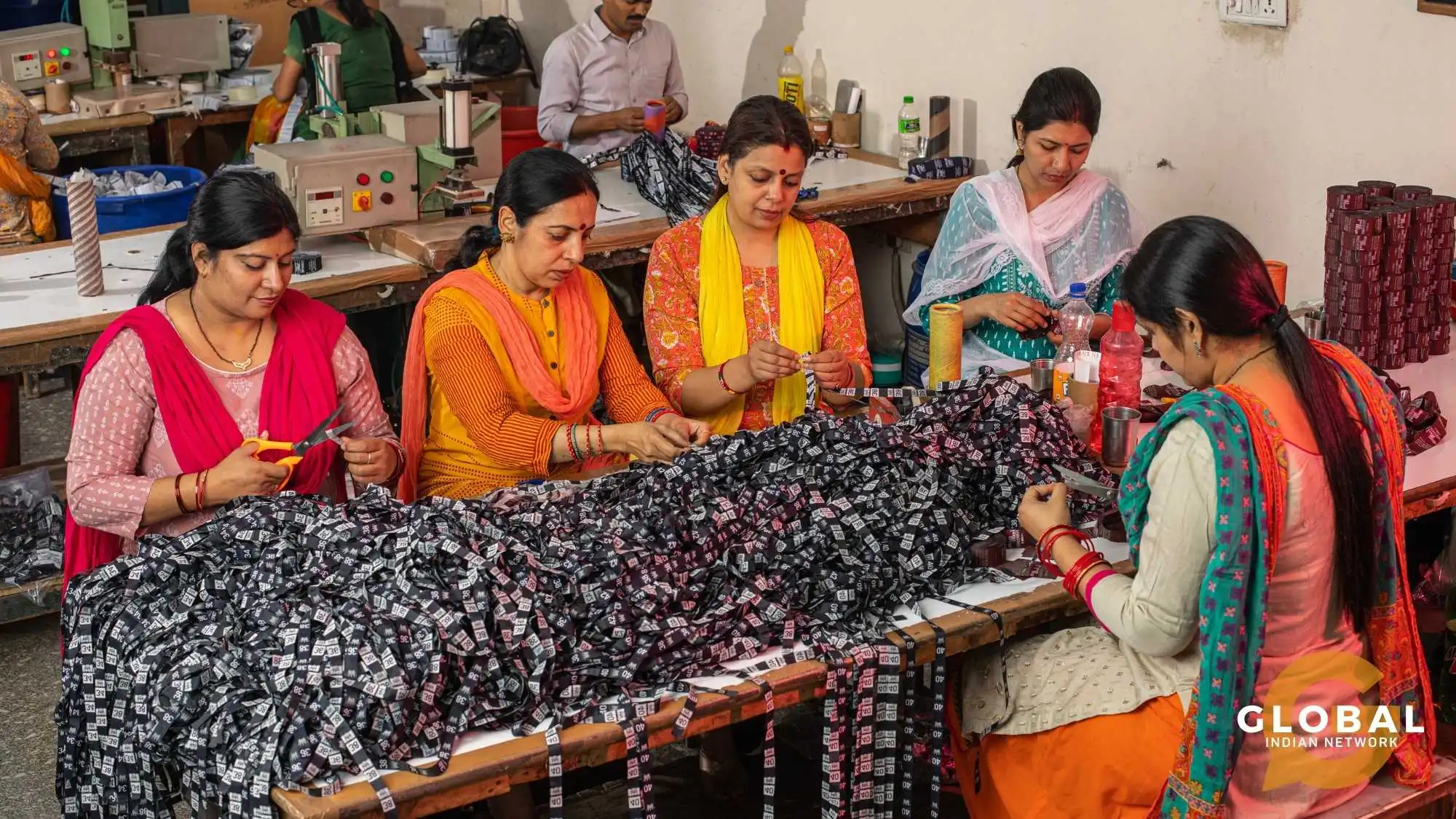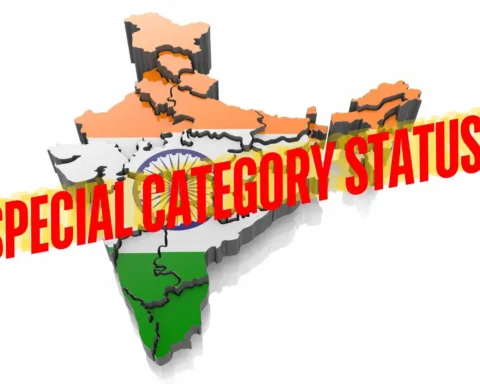In a country as diverse and dynamic as India, women's empowerment holds significant weight, demanding changes that echo down to the very foundation of society. The road to empowering women and achieving gender equality in India has been full of resilience, challenges, and optimism, marked by various intersectional debates. From breaking traditional barriers to driving economic growth, women's empowerment in India has far-reaching implications. However, like any social movement, it comes with its own set of advantages and disadvantages.
In this blog, we delve into the advantages and disadvantages of women's empowerment in India, exploring the benefits it brings alongside the challenges it poses. Join us on a journey through the complexities of gender equality in one of the world's most vibrant nations.
Listen To This Podcast: Inspiring Change: Chitra Stern's Advocacy for Women's Empowerment and Entrepreneurship
Table of Contents
What is Women's Empowerment?
Women's empowerment is the agenda of uplifting the status of women so that they can gain control over their lives, set their own agendas, and make strategic life choices. It involves increasing women's access to resources, knowledge, and skills and enhancing decision-making power while promoting self-reliance and removing constraints that impede women's ability to self-determinate.
According to the European Institute for Gender Equality, Women's empowerment encompasses five main elements:
- Women's self-esteem and self-value
- Their entitlement to make and control decisions
- Their access to opportunities and resources
- Their authority to manage their lives, both in personal and public spheres
- Their capability to impact social progress towards a fairer social and economic structure on both local and global scales
Empowerment of women is a multidimensional concept that encompasses various aspects of women's lives, including socio-cultural, economic, and political dimensions.
- Socio-cultural empowerment: Enhancing women's capacity and authority to make choices and transform those choices into desired actions and outcomes within their society and culture.
- Economic empowerment: Providing women with the means to achieve economic independence and strength and ensuring their ability to participate fully and freely in the economy.
- Political empowerment: Enhancing the participation of women in politics, their ability to influence public policy and decision-making, and gain representation in political and governance structures at all levels.
These dimensions are interconnected and interdependent, and progress in one area can influence progress in the others.
Advantages and Disadvantages of Women's Empowerment in India
While the need for uplifting and protecting women's rights in India is undeniable, it is worth analysing the advantages and disadvantages of women's empowerment in India at its present stage. Weighing its successes against its flaws brings forward valuable insight into the remaining challenges that require attention and action.
Advantages
Empowerment for women is not a standalone single-ended goal but plays into the overall aim of social, economic, and political progress and achieving an egalitarian Indian society.
Socio-Cultural Improvement: From a socio-cultural perspective, empowering women can lead to a more peaceful society with less gender-based violence and crimes against women, including domestic violence and sexual harassment. Women are traditionally understood as the binding force within families and communities, and their well-being may trigger a ripple effect of positive change in society.
Increased Education: Empowered women are more likely to prioritise education for themselves and their children, leading to higher literacy rates and improved educational outcomes. Additionally, empowered women are more likely to raise children who are emotionally and intellectually healthy. This, in turn, can lead to better outcomes for society as a whole.
Improved health outcomes: Empowered women are more likely to make informed decisions about their health and well-being, leading to better health outcomes for themselves and their families.
Economic Benefit: Economic empowerment of Indian women can lead to increased economic development. Women play a crucial role in building human capital, and their inclusion in the workforce can boost economic growth. Providing women with equal economic opportunities and fair wages promotes gender equality in the workplace, boosting the Female Labor Force Participation Rate (FLFPR) and leading to diverse skills and perspectives.
Gender parity in the economy can also lead to increased innovations and better solutions, as diverse perspectives and talents bring more ideas to the table.
Political Amelioration: Women's participation in politics can lead to better decision-making and outcomes. Encouraging political participation and supporting women in leadership roles can lead to more diverse and innovative solutions to national and global challenges, including economic inequality, social injustices, and climate change.
ALSO READ: Why is the role of NGOs in Women’s Empowerment Essential?
Disadvantages
Despite its numerous benefits, women's empowerment in India also faces certain internal and external disadvantages and challenges that hinder the process of overcoming the gender gap in all walks of life and society.
The implication of Passivity: One significant disadvantage is that women may settle for a passive role due to the perception that empowerment is something granted to them rather than a right they inherently possess. This can lead to a sense of dependency on external sources for empowerment, hindering women from fully realising their potential and taking charge of their lives.
Incompatibility with Social Realities: Another disadvantage of women's empowerment in India is its incompatibility with the existing gender discrimination deeply rooted in society, which impedes women's ability to counter gender inequalities. Despite efforts to promote female empowerment, Traditional gender roles and social norms, especially among rural women, may hinder the progress of women's empowerment efforts in India by limiting their participation in social, economic, and political spheres.
The empowerment that is externally endowed often fails to address the grassroots issues that are staunchly built-in within India's patriarchal culture, resisting the slightest force for change.
Economic Barriers: Moreover, economic disparities and social inequalities in India, especially among the rural population, can hinder the effects of women's empowerment from reaching those who need it the most: poor rural women. Socially disadvantaged poor women are more likely to accept and settle for passive roles for social and financial security. These economic and social barriers limit women's ability to benefit from empowerment programs and initiatives fully.
Lack of Support Infrastructure: The lack of comprehensive support systems and resources for women can nullify empowerment efforts. Limited employment opportunities for women, safety concerns in private and public spaces and cultural norms restrict women's mobility. They can undermine the effectiveness of empowerment efforts and slow down progress towards equitable gender relations.
Despite holding a significant portion of jobs, women own fewer assets, possibly due to factors like unpaid caregiving responsibilities, gender pay disparities, and limited access to secure employment. Balancing work with household duties, including care of children, is time-consuming and often unpaid, which might discourage women from pursuing their long-term economic and personal aspirations.
Psychological Aftermath: Economic empowerment is not the sole determinant of empowerment and is assumed to spill over to the social and psychological domain. Diener and Biswas-Diener, in their 2005 study, included emotional well-being as an empowerment indicator. Consequently, negative emotions may potentially stop the cycle of empowerment.
A 2001 survey discovered that women may experience increased emotional stress when taking on new responsibilities or facing challenges associated with empowerment. Women who utilised government-sponsored micro-credit schemes for income generation experienced higher emotional stress compared to their non-recipient counterparts. Similar experiments among women in self-help groups have shown that the perceived value of agency seems to decrease when there is a gap between expectations and outcomes, resulting in aspiration failure.
This suggests a worrying correspondence between economic agency and increased stress levels in women. This adverse impact on subjective well-being in early empowerment stages often manifests in resigned and disempowering attitudes towards future improvements, which go against the empowerment ethos.
However, it may be contended that increased emotional stress is more a consequence of prevailing socio-economic conditions than empowerment itself. Since well-being is highly subjective and varies across social spectrums, influenced by aspiration gaps, Luuk van Kempen suggests shifting the focus of empowerment from subjective well-being to the cultivation of capabilities.
Inversion of Disbalanced Power: Along with other issues surrounding women's empowerment in India, there is a rather unviable yet palpable concern that women's empowerment might inadvertently lead to a feeling of superiority among some individuals and potentially result in misuse of power or authority. While it is possible for such inversion of gender power dynamics to occur within closed in-groups and sub-cultures, it is far from affecting any real widespread social change worth raising concern in a staunchly patriarchal society like India.
You Might Be Interested In: Driving Change: Championing Women’s Rights in India with Swati Maliwal
Conclusion
Women's empowerment in India has become one of the essential goals for achieving gender equality and societal progress. It is likely going to take years of work, effort and discourse to get to a society where the status of women is equal to that of men, which is why it is crucial to address the advantages and disadvantages of women's empowerment in India in these early stages of development and wok around its flaws. While significant strides have been made in lifting women from poverty through economic schemes, education, and legislation, overcoming issues such as gender roles, cultural resistance, and economic disparities requires a roots-up approach that seeks to renegotiate with the received notions upon which society is built.
FAQs
What are the advantages and disadvantages of women's empowerment?
Advantages of women's empowerment include enhanced self-worth and decision-making power for women, improved access to education, health, and employment opportunities and increased freedom for women to make informed choices. On the other hand, the perception of empowerment as granted rather than an inherent right can be considered a disadvantage. Moreover, many women's empowerment can only manage to provide surface-level solutions which fail to address systemic issues that give rise to inequalities.
What are the benefits of women empowerment in India?
Women's empowerment in India brings numerous benefits, including economic development, social progress, increased participation in decision-making processes, and greater freedom for women to make choices based on their preferences. These advancements empower women individually and contribute to society's overall progress and well-being by fostering inclusivity, economic growth, and sustainable development.
What are the advantages of women's rights?
Advancing women's rights allows women to participate in society on an equal footing with men. It also helps women gain confidence, enhance their ability to make choices and gain control over their lives. Women's participation may boost innovation, productivity, and entrepreneurship, resulting in economic growth, reduced poverty, social progress, and a better society overall.










